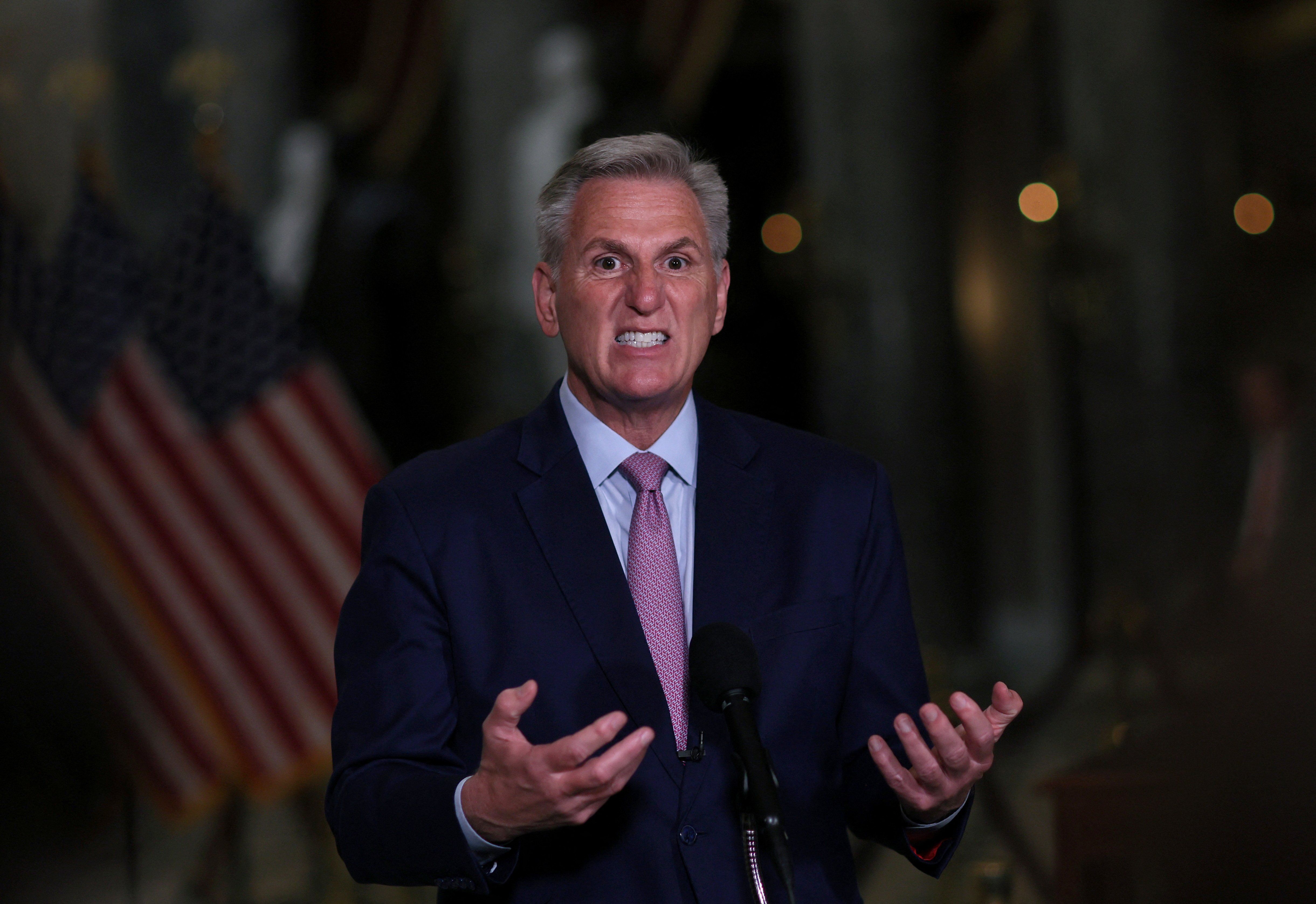Republican Speaker of the House Kevin McCarthy needs to decide whether to keep his promise to Donald Trump about calling for a vote to expunge the former president's two impeachments, the second of which was for his actions during the Jan. 6 riots.
Such a vote would force GOP House members to publicly denounce Trump or condone his actions – just as Trump is facing possible indictment for allegedly inciting the Jan. 6 riots. But McCarthy made a deal, and Trump is coming to collect.
Here’s the background. Last month, McCarthy found himself in the doghouse after suggesting on TV that Trump may not be the strongest GOP presidential candidate. Trump – who was pivotal in McCarthy’s rise to power – demanded the speaker endorse his campaign. But McCarthy, not ready to tie himself to Trump, stalled by promising to call the vote before Congress adjourns in August.
You’ll recall that McCarthy won the speakership by making the concession that only one GOP member is needed to call for his resignation, giving Trump’s allies in the house – who have threatened to oust McCarthy before – outsized power to hold the speaker to his word.
Many GOP House members, particularly those in Biden-won districts, aren’t keen to revisit the impeachments, especially the one regarding Jan. 6. Polling shows that most Americans disapprove of Trump’s actions during the insurrection. Meanwhile, constitutionally minded conservatives are questioning whether the House has the authority to erase an impeachment.
Jon Leiber, head of Eurasia Group’s US practice, says that “there is no constitutional process for expungement of an impeachment vote,” which gives Republicans a procedural scapegoat.
But regardless of whether McCarthy makes good on his promise, Trump won’t be satisfied until McCarthy endorses his candidacy, and he will continue to use his allies in the House to apply pressure if McCarthy waits too long.
